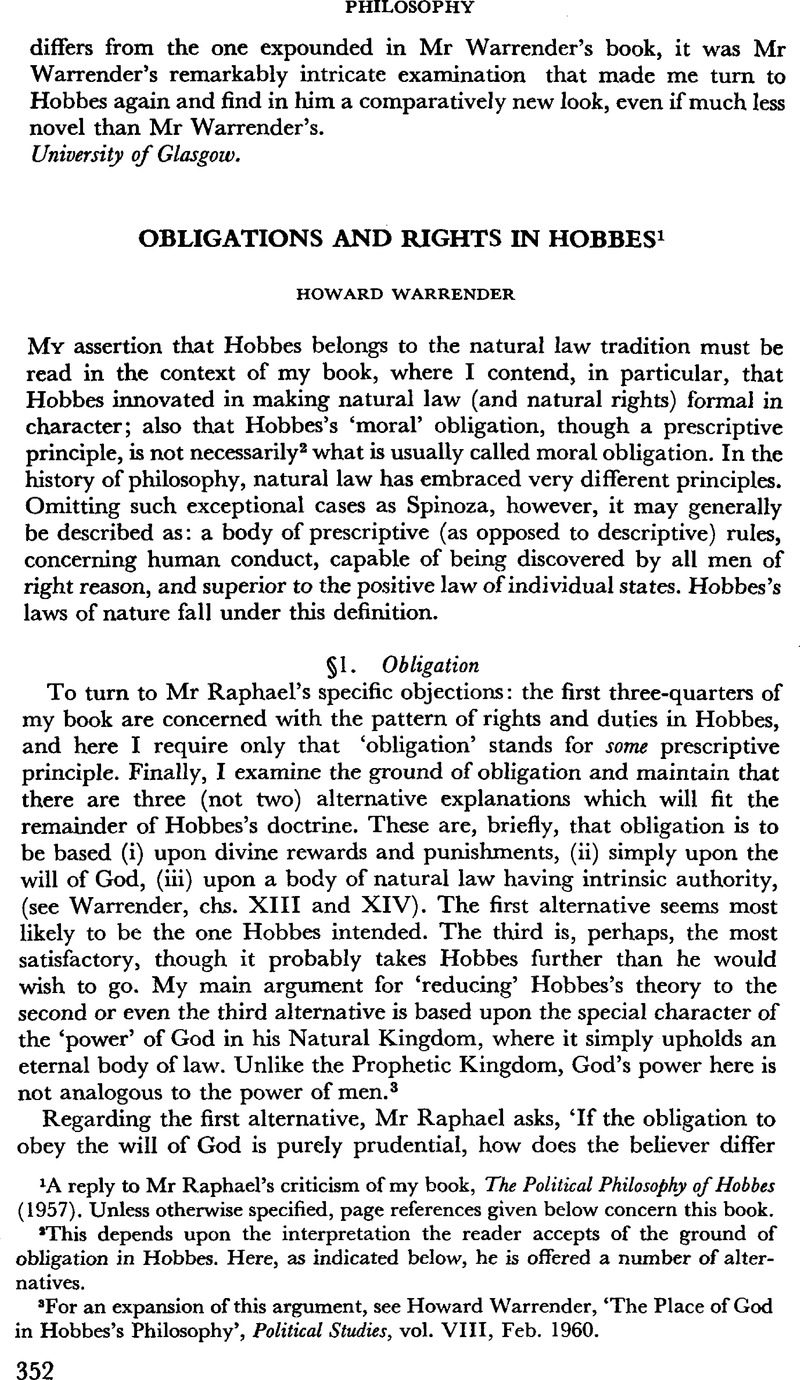Article contents
Obligations and Rights in Hobbes1
Published online by Cambridge University Press: 25 February 2009
Abstract

- Type
- Discussion
- Information
- Copyright
- Copyright © The Royal Institute of Philosophy 1962
References
page 352 note 2 This depends upon the interpretation the reader accepts of the ground of obligation in Hobbes. Here, as indicated below, he is offered a number of alternatives.
page 352 note 3 For an expansion of this argument, see Howard, Warrender, ‘The Place of God in Hobbes's Philosophy], Political Studies, vol. 8, 02 1960.Google Scholar
page 353 note 1 See, e.g. Behemoth, E.W. vol. 6, p. 231; also Warrender, ch. XII on the Harmony of Interests.
page 353 note 2 This point becomes clearer when we consider superior power in contrast with irresistible power, below.
page 353 note 3 Liberty and Necessity, E.W., vol. 4, pp. 249–50; see also Warrender, pp. 281–2, 314–16.
page 354 note 1 Leviathan, E.W., vol. 3, p. 189; see also Warrender, pp. 122 ff.
page 354 note 2 The detailed rules for covenants set out, e.g. in Warrender, ch. III and hence the argument to political obligation, are all concerned with the covenanting principle qua third law of nature, and nothing to do with breach of covenant as a logical contradiction.
page 354 note 3 See Warrender, pp. 233–7.
page 355 note 1 I do consider the rights that follow from silence of the law, but this is a different and a minor problem in Hobbes. See Warrender, pp. 26, 195, 254; c.f. my assertion that the state of nature is not a moral vacuum.
page 355 note 2 As noted below, this expression is not entirely trouble free.
page 356 note 1 This does not mean that men must always know the law or have a sufficient motive to obey it, but that they must be able to do so, given sufficient reflection,etc.
page 356 note 2 See Warrender, chs. II–IV.
- 3
- Cited by




